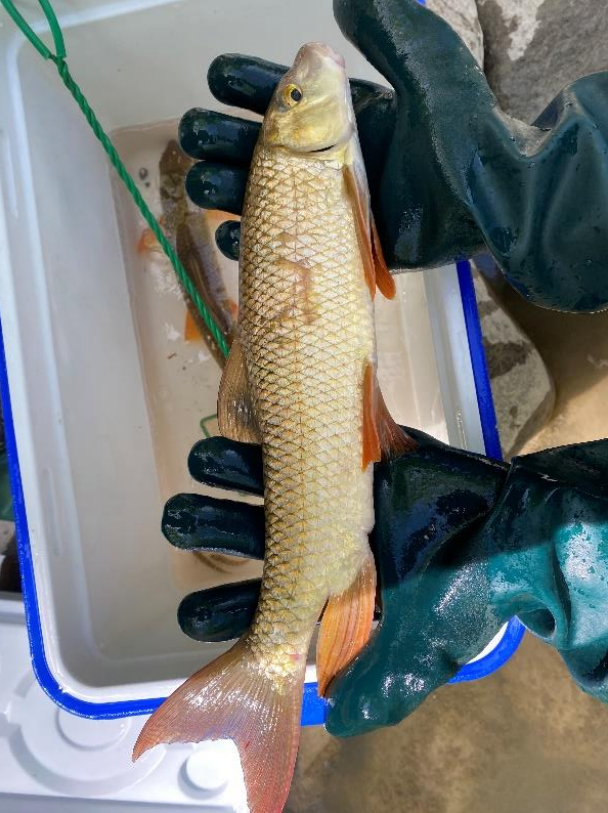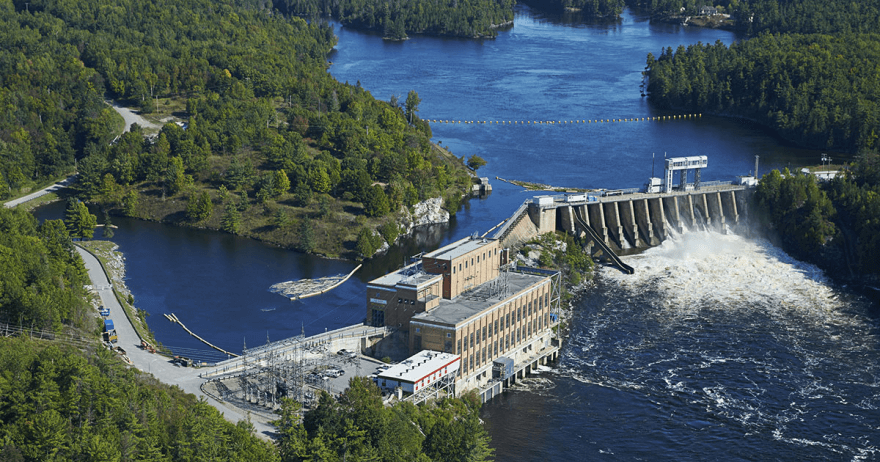Conserve and sustainably use the oceans, seas and marine resources for sustainable development
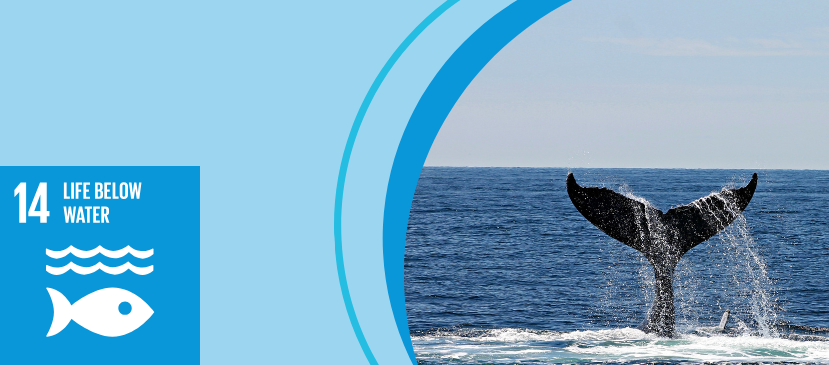
Research
Migratory Fish in Medway Creek
Migratory Fish in Medway Creek is a project supported by the Western Sustainable Impact Fund. Researchers examined how freshwater fish species respond to climate-driven changes in temperature and habitat. Using long-term data and predictive modeling, the project identified shifts in species distribution and ecosystem dynamics. This research informs conservation strategies and resource management practices that help maintain biodiversity and ecological balance in freshwater systems connected to larger aquatic environments.
Motus on the Move
Motus on the Move, in the Centre for Animals on the Move, advances ecological research by tracking bird and fish migration across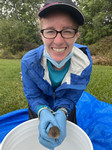 aquatic and coastal regions using radio telemetry. This data reveals how environmental changes affect species that depend on healthy water systems. By identifying key habitats and migration corridors, the project supports evidence-based conservation strategies that protect biodiversity and sustain the ecological integrity of freshwater and marine environments.
aquatic and coastal regions using radio telemetry. This data reveals how environmental changes affect species that depend on healthy water systems. By identifying key habitats and migration corridors, the project supports evidence-based conservation strategies that protect biodiversity and sustain the ecological integrity of freshwater and marine environments.
Chile Study Trip
During their International Study Trip to Chile, Ivey Accelerated MBA participants explored real-world sustainability challenges in marine and coastal industries. By engaging directly with local businesses and ecosystems, students applied classroom concepts to complex environmental contexts. This immersive experience deepened their understanding of sustainable resource use and equipped them with practical insights into managing the environmental impacts of global supply chains.
Environmental and Water Resources Courses
Graduate courses in Environmental and Water Resources Engineering at Western integrate real-world aquatic challenges into the curriculum. Students gain hands-on experience in hydrology, water quality, and ecosystem modeling—developing technical skills to address environmental issues affecting freshwater and marine systems. This applied learning approach equips future engineers to design sustainable solutions that protect and restore aquatic environments.
Land Healing and Responsibility
The field course Land Healing and Responsibility: Community Based Research in Indigenous Studies integrates Indigenous knowledge systems with environmental issues, including water and land  stewardship. Through readings, discussions, and experiential learning, students explore relationships between Indigenous worldviews and ecological sustainability. This course deepens understanding of environmental ethics and governance, equipping students with diverse perspectives to address contemporary challenges affecting aquatic and terrestrial ecosystems.
stewardship. Through readings, discussions, and experiential learning, students explore relationships between Indigenous worldviews and ecological sustainability. This course deepens understanding of environmental ethics and governance, equipping students with diverse perspectives to address contemporary challenges affecting aquatic and terrestrial ecosystems.
Outreach
100% Great Lake Fish: Ontario Supply Chain Analysis
The 100% Great Lake Fish: Ontario Supply Chain Analysis project, 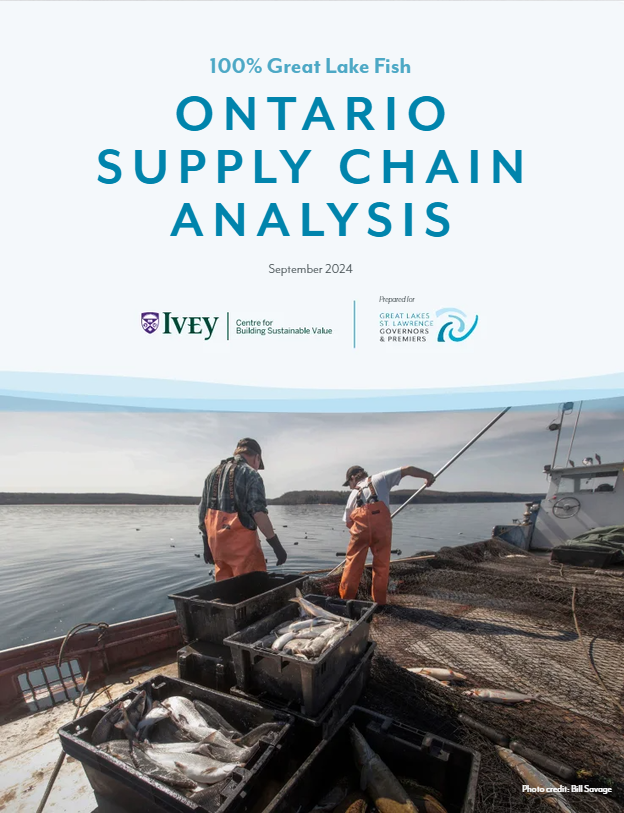 part of Ivey’s Circular Economy Lab, engages industry and community partners to explore how to use more of each fish harvested from the Great Lakes. Through applied research and collaboration, it promotes sustainable practices, reduces waste, and supports healthier aquatic ecosystems—translating academic insights into real-world improvements across Ontario’s fisheries and food systems.
part of Ivey’s Circular Economy Lab, engages industry and community partners to explore how to use more of each fish harvested from the Great Lakes. Through applied research and collaboration, it promotes sustainable practices, reduces waste, and supports healthier aquatic ecosystems—translating academic insights into real-world improvements across Ontario’s fisheries and food systems.
Water Management under Changing Climate Workshop
The Water Management Under Changing Climate Workshop, led by Dr. Slobodan Simonovic, brought together students, researchers, and professionals to explore system dynamics modeling for managing water-related risks. Participants used real-world data to simulate flood and drought scenarios, gaining practical skills in sustainable water resource planning. By linking academic research with applied solutions, the event contributed to efforts aimed at conserving freshwater systems and promoting the responsible, long-term use of aquatic environments in the face of climate and environmental change.
Marine Makeover
Marine Makeover raises awareness about microplastic and microfibre pollution in aquatic environments. Through storytelling, expert commentary, and public engagement, it connects scientific research with everyday choices. By translating complex environmental issues into accessible narratives, the initiative encourages sustainable behaviour and empowers individuals to take action in protecting freshwater and marine ecosystems.
Operations
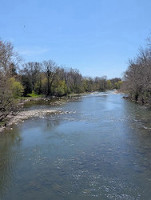 Medway Creek Rehabilitation Photos
Medway Creek Rehabilitation Photos
The Medway Creek photo monitoring project, coordinated through Western, engages the campus and local community in tracking ecological restoration using seasonal imagery. This citizen science initiative builds a visual record of habitat changes, contributing to research and public understanding of freshwater health. By integrating community participation with academic goals, it strengthens long-term stewardship of aquatic environments through accessible, on-the-ground environmental observation.
Reduced Campus Water Use Intensity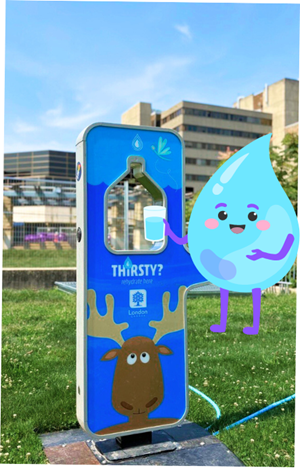
In the Results of Energy Conservation and Demand Management Plan 2019-2024, Western reduced water intensity by 13.9% and campus water use by 8.8% from 2018 levels. Measures included optimizing chiller plants to reduce electricity use and installing electric heat pumps to share low-temperature water across buildings. A closed-loop ground source heat pump system was introduced for efficient heating and cooling. Updated design guidelines ensure new buildings are net-zero ready and evaluated for renewable energy integration, supporting sustainable aquatic resource management through reduced water and energy consumption.
